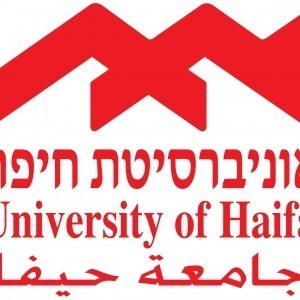Photos of university / #hebrewuniversity
The MSc in Public Health at The Hebrew University of Jerusalem offers an comprehensive graduate program designed to prepare students for leadership roles in the field of public health. This interdisciplinary program combines theoretical knowledge with practical skills, enabling graduates to address complex health issues affecting diverse populations. The curriculum covers a wide range of topics including epidemiology, biostatistics, health policy and management, environmental health, and social determinants of health. Students are encouraged to develop critical thinking and analytical skills through coursework, research projects, and fieldwork opportunities. The program emphasizes a multidisciplinary approach, integrating insights from medicine, sociology, psychology, and economics to foster a holistic understanding of public health challenges. Students have access to state-of-the-art laboratories, libraries, and research centers, fostering an environment of innovation and academic excellence. The program also offers avenues for collaboration with health organizations, government agencies, and community initiatives, providing practical experience and networking opportunities. Graduates from this program are equipped to pursue careers in public health research, policy development, health education, and program management both nationally and internationally. With a strong emphasis on evidence-based practices and cultural competence, the MSc in Public Health prepares students to contribute effectively to the improvement of health outcomes and the reduction of health disparities worldwide. The Hebrew University’s renowned faculty members bring a wealth of expertise and experience, providing mentorship and guidance throughout the students’ academic journey. Upon completion of the program, graduates are well-positioned to assume pivotal roles in public health, contributing to policy making, health system strengthening, and innovative research efforts aimed at creating healthier societies.
The required courses which constitute the core of the IMPH studies include:
Community Oriented Primary Health Care Workshop
Control of Communicable Diseases
Environmental and Occupational Health
Health Economics
Health Promotion and Health Behavior
Interpretation of Epidemiological Data
Introduction to Public Health
Organization of Medical Care
Principles and Uses of Epidemiology
Public Health Nutrition
Public Health Practice, Organization and Evaluation
Public Health Seminar
Qualitative Methods in Public Health
Research Forum
Sociology of Health and Illness
Statistical Methods for Public Health
Survey and Research Methods
Students also choose from a wide range of elective courses such as:
-
-
Aging: Epidemiology and Services
-
Community Mental Health
-
Economic Evaluation of Public Health and Medical Interventions
-
Geographic Information Systems (GIS) and Public Health
-
Health Promotion
-
History of Public Health Epidemiology
-
Public Health Demography
-
Maternal and Child Health
-
Multidisciplinary Aspects of HIV/AIDS
-
Public Health Ethics
-
Risk Approach in Health Services
-
Selected Topics in Epidemiology
-
Statistical Methods for Analysis of Rates
-
-
To be eligible for the IMPH Program you must hold an academic degree (BA/BSc, MA/MSc, MD) in medicine, dentistry, nursing, another allied health field, or in one of the basic biological or social sciences relevant to health from a recognized university. Diploma/Advanced Diploma degrees are not recognized as academic degrees by Hebrew University.
Applicants who hold only a bachelor’s degree must have obtained an overall grade point average (GPA) of at least 75% in their undergraduate studies.
Practical experience in public health is taken into account as well as academic achievement.
Students must have a command of basic computing skills and a high level of English.
A limited number of scholarships are available for selected students from developing countries and countries in economic transition. These scholarships cover virtually all costs related to participation in the Program including tuition, living accommodations, basic living expenses in the form of a monthly stipend, medical insurance, social activities, administration costs, and some textbooks. Airfare to and from Israel is not included in the scholarship.
Scholarship support is not available for students from high-income countries. The cost of participation in the IMPH program for non-scholarship students is 100,000 New Israeli Shekels (NIS). All payments must be made in Israeli currency or foreign currency based on the official exchange rate on the day of payment. This sum covers tuition, administrative fees, social/cultural activities, and medical insurance. (Living accommodations are not included and cannot be guaranteed.)
There are external scholarship opportunities for students applying to the International Master of Public Health Program at the Braun School of Public Health and Community Medicine who do not qualify for financial assistance through the school. One of these is the Rotary Global Grant, which is a match grant scheme between the applicant’s local Rotary District and the Rotary Foundation’s Global Fund.
The Hebrew University of Jerusalem offers a comprehensive program in Public Health designed to prepare students for careers in health promotion, disease prevention, health policy, and healthcare management. The programme emphasizes interdisciplinary approaches, combining clinical sciences, social sciences, and policy analysis to equip graduates with the skills necessary to address complex health issues at local, national, and international levels. Students gain a strong foundation in epidemiology, biostatistics, health systems management, environmental health, and community health. The curriculum includes coursework in health promotion strategies, health economics, behavioral sciences, and research methodologies, enabling students to develop effective interventions and policies. The program also offers practical experience through fieldwork, internships, and research projects, fostering real-world application of theoretical knowledge. Graduates are prepared to work in government agencies, non-governmental organizations, international health organizations, hospitals, and research institutions. The university's strong emphasis on research and collaboration with health authorities ensures that students are engaged with current health challenges and innovative solutions. Additionally, the program promotes a global perspective by incorporating international health issues and cross-cultural competencies, preparing students to operate effectively in diverse settings. The Hebrew University of Jerusalem's Public Health program is recognized for its academic excellence and its commitment to advancing public health through education, research, and community engagement, making it a leading choice for students pursuing careers dedicated to improving health outcomes worldwide.







